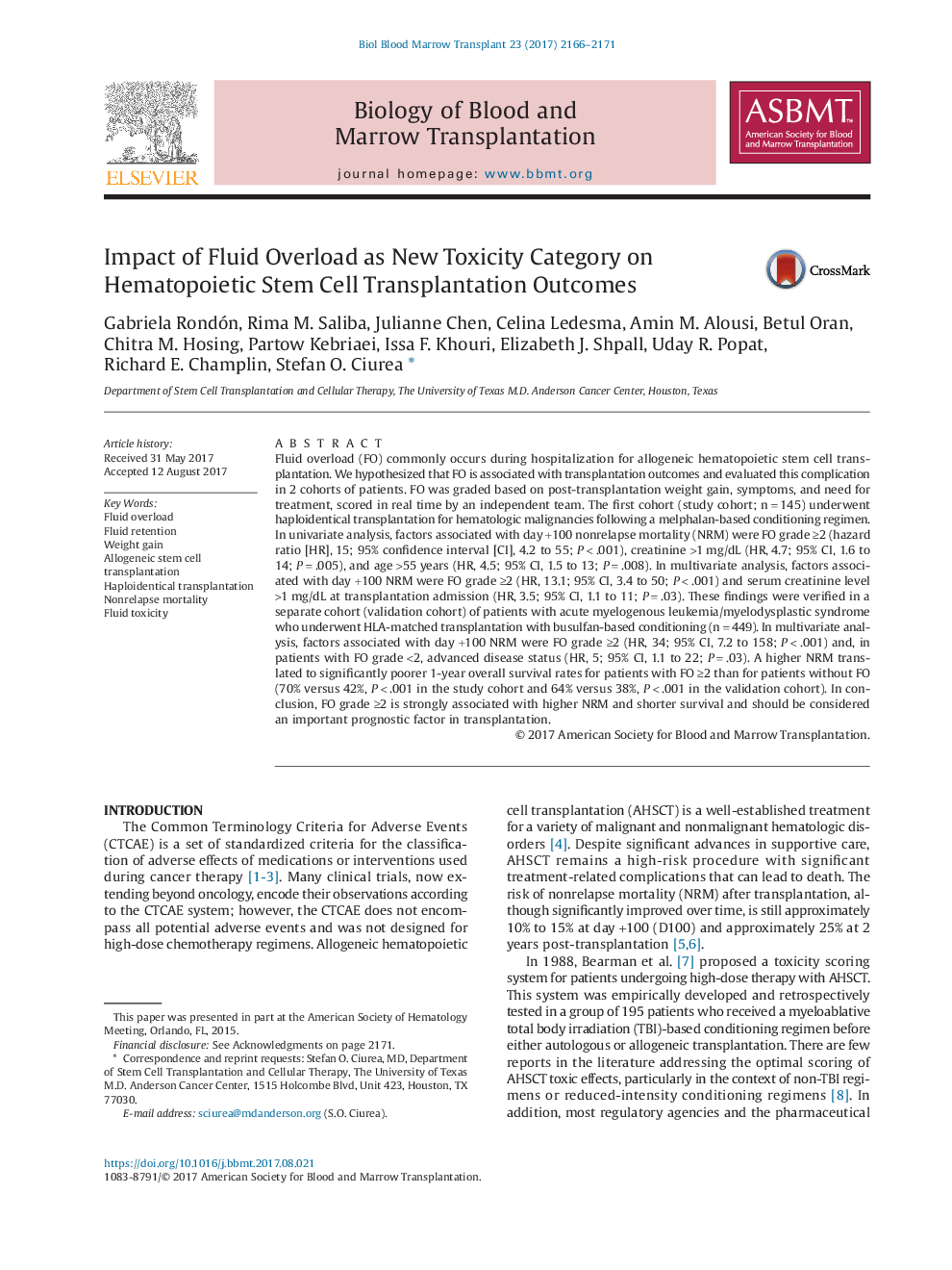| Article ID | Journal | Published Year | Pages | File Type |
|---|---|---|---|---|
| 8430761 | Biology of Blood and Marrow Transplantation | 2017 | 6 Pages |
Abstract
Fluid overload (FO) commonly occurs during hospitalization for allogeneic hematopoietic stem cell transplantation. We hypothesized that FO is associated with transplantation outcomes and evaluated this complication in 2 cohorts of patients. FO was graded based on post-transplantation weight gain, symptoms, and need for treatment, scored in real time by an independent team. The first cohort (study cohort; nâ=â145) underwent haploidentical transplantation for hematologic malignancies following a melphalan-based conditioning regimen. In univariate analysis, factors associated with day +100 nonrelapse mortality (NRM) were FO grade â¥2 (hazard ratio [HR],â15; 95% confidence interval [CI], 4.2 to 55; Pâ<â.001), creatinine >1âmg/dL (HR,â4.7; 95% CI, 1.6 to 14; Pâ=â.005), and age >55 years (HR, 4.5; 95% CI, 1.5 to 13; Pâ=â.008). In multivariate analysis, factors associated with day +100 NRM were FO grade â¥2 (HR, 13.1; 95% CI, 3.4 to 50; Pâ<â.001) and serum creatinine level >1âmg/dL at transplantation admission (HR,â3.5; 95% CI, 1.1 to 11; Pâ=â.03). These findings were verified in a separate cohort (validation cohort) of patients with acute myelogenous leukemia/myelodysplastic syndrome who underwent HLA-matched transplantation with busulfan-based conditioning (nâ=â449). In multivariate analysis, factors associated with day +100 NRM were FO grade â¥2 (HR, 34; 95% CI, 7.2 to 158; Pâ<â.001) and, in patients with FO grade <2, advanced disease status (HR, 5; 95% CI, 1.1 to 22; Pâ=â.03). A higher NRM translated to significantly poorer 1-year overall survival rates for patients with FO â¥2 than for patients without FO (70% versus 42%, Pâ<â.001 in the study cohort and 64% versus 38%, Pâ<â.001 in the validation cohort). In conclusion, FO grade â¥2 is strongly associated with higher NRM and shorter survival and should be considered an important prognostic factor in transplantation.
Keywords
Related Topics
Life Sciences
Biochemistry, Genetics and Molecular Biology
Cancer Research
Authors
Gabriela Rondón, Rima M. Saliba, Julianne Chen, Celina Ledesma, Amin M. Alousi, Betul Oran, Chitra M. Hosing, Partow Kebriaei, Issa F. Khouri, Elizabeth J. Shpall, Uday R. Popat, Richard E. Champlin, Stefan O. Ciurea,
